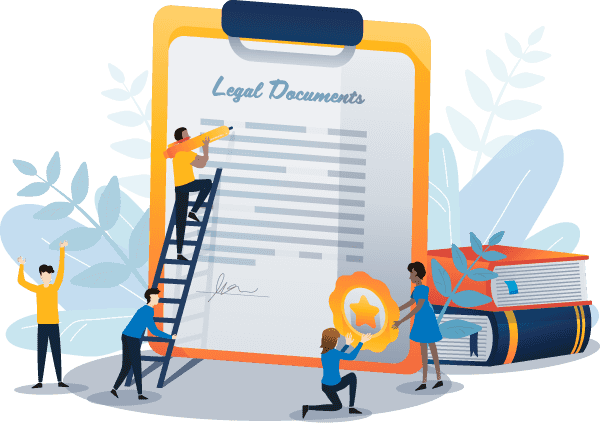In March 2020, the NSW Law Reform Commission tabled recommendations for new laws regarding access to the digital records and assets of a person after their death to the NSW Parliament. This signals the government’s recognition that online social activities and economy are becoming increasingly integrated into our lives. Existing laws do not directly account for what happens to a person’s digital possessions after they die or are incapacitated. The government is expected to rely upon these recommendation when making new laws about digital asset and record management. Here, we’ll first discuss what is meant by ‘digital assets’ and ‘digital records’, then set out the Commission’s key recommendations.
What are ‘digital assets’ and ‘digital records’?
The Commission’s report defines digital assets as digital materials that someone would consider to be their property. This includes anything from cryptocurrencies such as Bitcoins, digital photos in a person’s phone or other digital artworks.
Digital records include digital assets, but also include materials that people don’t technically have full property rights over. These include social media profiles, email accounts, online payment accounts, game avatars, digital music and eBook collections.
Digital materials of course differ from physical ones for a number of reasons. First, they exist on platforms that third parties such as Facebook, Google and Paypal facilitate and control. Second, in order to access these materials, one often needs access information such as a password. Third, they do not deteriorate and could potentially last forever. The Commission took these unique aspects into account in its recommendations.
Key recommendations
Alignment with existing wills and estate laws
The Commission found that it could adapt core principles underpinning existing wills and estate laws for the digital world. Two key principles that the Commission adapted are the following.
Hierarchy of rights
The Commission recommends that a hierarchy of rights should determine who should deal with a deceased person’s digital records. This aligns with existing wills and estate laws, in that the law gives priority to the wishes of the deceased.
For example, a deceased person may have appointed a person to be their enduring guardian or enduring power of attorney. This is usually via a will. If the will provides that this person can deal with the deceased’s digital records, then they will have legal authority to do so.
If no such person is appointed, then a person authorised via an ‘online tool’ may access the deceased’s digital records. ‘Online tool’ means a tool provided by a digital platform to allow users to give directions or permissions to another person to manage their account. This includes, for example, Facebook’s Legacy Contact tool and Google’s Inactive Account Manager tool.
If no person has been appointed nor authorised via an online tool, a person with access information to the deceased’s digital records (e.g. password) may access it. This is if the deceased person personally gave them the passwords prior to their death. This does not include situations where a person knows the password of deceased persons accounts due to employment or contractual relationships, unless otherwise indicated via the deceased person prior to their death.
The authorised person would have the power to manage and deal with the deceased’s digital records. This includes transferring any digital records to people entitled under the deceased’s will. However, they would not have the right to edit any contents of the digital records.

Make your wishes known in a matter of minutes.
Complete, customise and download your will for free.
Get startedPrivacy
For many people nowadays, digital records probably hold the most intimate information about their life. These include anything from photos on your social media accounts, to confidential emails, to those embarrassing messages in your group chat. Aspects of your private life which are highly sensitive, which you are not proud of or were only meant to be shared to select people are likely to come into the hands of another person after you die. They will also be difficult to completely erase. The Commission has therefore proposed laws in relation to the improper disclosure of information for digital records. These again align with the way guardians, attorneys and executors must treat physical assets and records under existing wills and estate laws.
Under the proposed law, it is generally an offence for an authorised person to disclose information about digital records. This is unless some exceptions apply. These include if the will allows them to, or if disclosure of information is necessary to administer the deceased’s estate. The proposed law also makes it clear that laws in relation to fiduciary duties apply. These laws require the authorised person to not abuse their position of confidence, and to act in good faith.
Rights of online platform owners
An element of digital records not accounted for by existing wills and estate laws is how online platforms operate. People store much of their digital assets and records on online platforms owned by third parties. Online platforms may have property rights over some things used on their platforms. They may also have different policies regarding what happens to inactive accounts. The recommendations seek to preserve property rights of online platforms while canvassing some uniform laws regarding how some digital records and assets should be dealt with.
For example, the proposed law provides that in administering and dealing with the digital records and assets of a deceased person, the authorised person should comply with the terms of the online platform. For example, say that an online platform licences music, movies and eBooks to its account holders on a non-transferable basis. The authorised person administering a deceased person’s estate would not be able to bequeath the music and movies to the beneficiaries of a will.
However, the proposed laws provide that if an online platform has a policy limiting the authorised person’s right to access particular digital records of the deceased, this should be made unenforceable. Therefore, this law will override any policies of the online platform, even if the platform seeks to apply the laws of another state or country. The aim is to make it easier for the family or other close contacts of the deceased to deal with their digital assets and records across multiple platforms. It also ensures that they will not lose access to online materials that have strong sentimental value to them.
Conclusion
In the current age, many of us occupy two worlds – the physical and the digital world. Just like how many of our physical possessions will outlive us, so too will our digital possessions, and perhaps forever. These recommendations proposed by the NSW Law Reform Commission provide much needed clarification and direction about how a deceased person’s digital assets and records should be managed. While the government has not made them into law yet, they will take these recommendations into account when drafting new legislation regarding digital assets and records. So you should watch this space, and in the meantime, consider including digital assets and records in your will.






